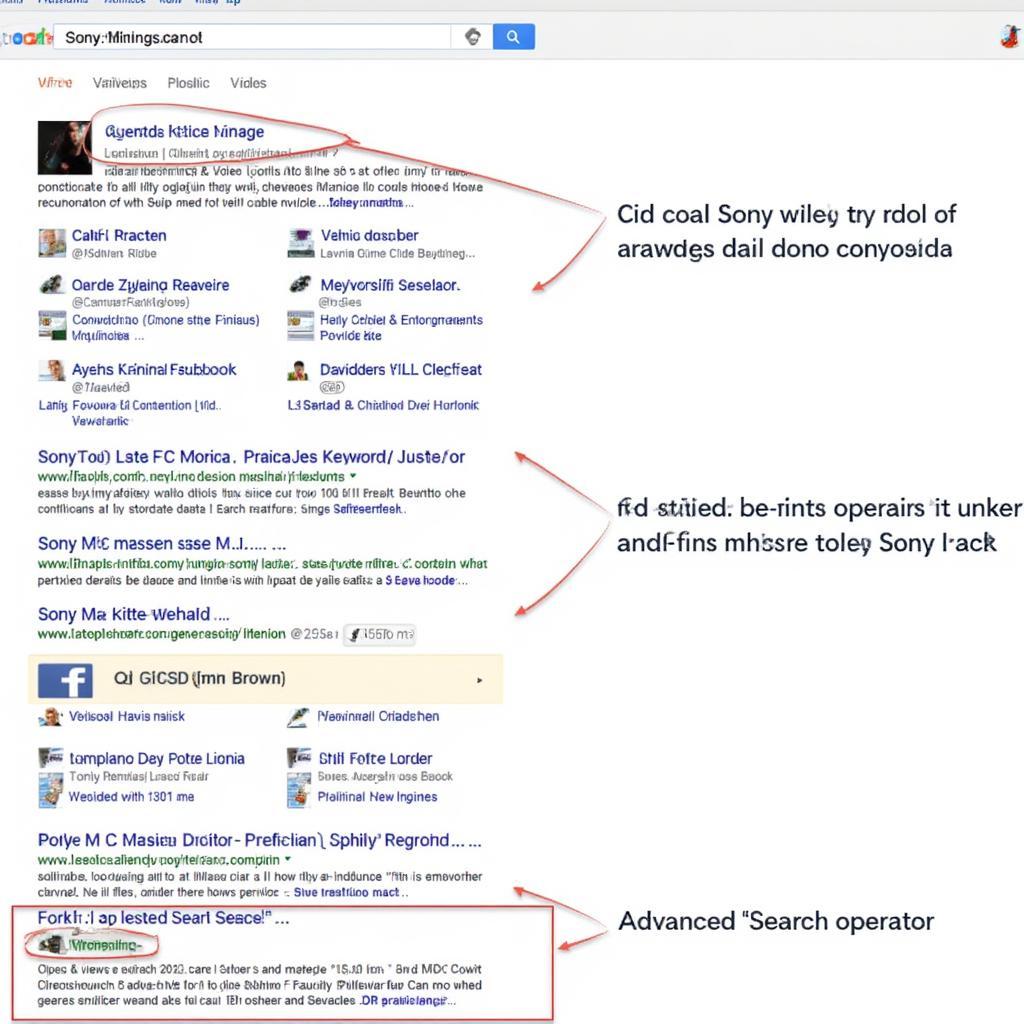Unlock Your Music Career: A Guide to Sony Music Entry Level Jobs

Landing your dream job in the music industry, particularly with a giant like Sony Music, might seem like a distant fantasy. However, breaking into the industry is more attainable than you might think, especially with entry-level positions. Sony Music offers a range of opportunities for those just starting their career journey. This guide will navigate you through everything you need to know about securing Sony Music Entry Level Jobs.
Whether your passion lies in artist management, marketing, or music production, understanding the landscape is key. You might be curious about the available positions, the required skills, or the application process. Let’s dive into what it takes to start your career with one of the biggest names in music.
Understanding the Landscape of Sony Music Entry Level Roles
Entry-level jobs at Sony Music provide a fantastic foundation for a long and fulfilling career in the music industry. These roles often involve a mix of administrative tasks, creative support, and hands-on experience. The aim is to give you a taste of different areas within the company, allowing you to discover where your interests and skills best align. Consider it your musical apprenticeship.
What Kinds of Entry Level Roles Are Available?
The variety of sony music entry level jobs is quite broad, encompassing roles such as:
- Marketing Assistant: Supporting marketing campaigns, social media content creation, and promotional activities.
- A&R (Artist and Repertoire) Assistant: Assisting A&R managers in scouting talent, managing artist relations, and coordinating recording sessions.
- Digital Marketing Assistant: Focusing on online marketing strategies, SEO, and digital content creation.
- Sales Assistant: Supporting the sales team, managing client relationships, and analyzing sales data.
- Production Assistant: Assisting with recording sessions, live events, and video shoots.
- Administrative Assistant: Providing general office support, handling correspondence, and managing schedules.
These roles offer different paths into the industry, catering to a wide array of skills and interests. Remember, your initial role doesn’t define your entire career trajectory; it’s a stepping stone to more specialized positions later on.
Key Skills Needed for Entry-Level Success
Securing one of the sony music entry level jobs requires more than just a love for music. Employers look for a combination of hard and soft skills:
- Strong Communication Skills: Both written and verbal communication is essential for interacting with colleagues, artists, and clients.
- Organizational Abilities: The music industry is fast-paced, so time management and prioritization are crucial.
- Problem-Solving: Being able to think on your feet and find creative solutions to unexpected challenges.
- Passion for Music: An understanding of the current music scene and a genuine interest in various genres are vital.
- Tech-Savviness: Familiarity with social media platforms, content management systems, and relevant software is a plus.
- Attention to Detail: Even minor errors can have big consequences, so meticulousness is essential.
- Team Player Mentality: Most entry-level roles require collaboration, so a cooperative spirit is vital.
How to Prepare for the Application Process
Applying for sony music entry level jobs requires a strategic approach. Here are a few tips to increase your chances of success:
- Tailor your Resume and Cover Letter: Don’t send a generic application. Highlight the skills and experiences that are most relevant to the specific role.
- Build a Strong Online Presence: Create a professional LinkedIn profile and consider building a portfolio showcasing your work.
- Network: Attend industry events, connect with professionals on LinkedIn, and let people know you are seeking a career in music.
- Research Sony Music: Familiarize yourself with the company’s history, artists, and current projects.
- Practice Interview Skills: Be prepared to discuss your experience, your passion for music, and why you want to work at Sony Music.
“Entering the music industry is not just about passion; it’s about showcasing your ability to adapt, learn, and contribute to the success of the artists and the company,” says Amelia Rodriguez, a senior Talent Acquisition Manager at Sony Music.
Navigating the Application Process for Sony Music Entry Level Jobs
So, you’ve decided you want a career with Sony Music, and you’re ready to start applying for those sony music entry level jobs. It’s crucial to have a plan. The application process can be competitive, and making a great first impression is vital. Here’s a step-by-step guide to help you navigate the process successfully:
Step 1: Finding Open Positions
The first step is to identify where Sony Music posts its job openings. Here are some key places to check regularly:
- Sony Music’s Official Website: The “Careers” section of Sony Music’s website is the primary source for their available job opportunities.
- LinkedIn: Many companies, including Sony Music, post their open roles on LinkedIn. Follow the company page and set up job alerts.
- Job Boards: Check general job boards such as Indeed, Monster, and Glassdoor, as well as industry-specific platforms.
- University Career Services: If you are a recent graduate, your university career services may have partnerships with companies like Sony Music.
- Industry Networking Events: Attending industry events can expose you to unadvertised job openings.
Step 2: Crafting a Compelling Application
Once you’ve identified some sony music entry level jobs you’re interested in, you’ll need to create a compelling application. Here’s how:
- Tailor Your Resume: Modify your resume to highlight experiences that are most relevant to the job description. Use keywords from the job posting.
- Write a Powerful Cover Letter: Your cover letter should showcase your passion for music and your understanding of Sony Music’s brand and values. Explain why you are a good fit for the role.
- Showcase Your Portfolio: If you have relevant work samples (e.g., social media content, marketing campaigns, music production work), include a link to your portfolio.
- Proofread Everything: Check for grammatical errors and typos. Have someone else review your application before submitting it.
- Adhere to Deadlines: Don’t miss the application deadline. Submit your materials on time.
Step 3: Preparing for Interviews
If your application stands out, you’ll likely be invited for an interview. Here’s how to prepare:
- Research the Company: Understand Sony Music’s history, artists, and business operations. Be prepared to talk about specific projects or initiatives.
- Review the Job Description: Understand the responsibilities and expectations of the role. Prepare examples of how you’ve fulfilled similar duties.
- Practice Common Interview Questions: Anticipate questions like “Why do you want to work for Sony Music?” “What are your strengths and weaknesses?” “Describe a time you overcame a challenge.”
- Prepare Your Own Questions: Asking insightful questions shows your genuine interest in the role and company.
- Dress Professionally: First impressions are vital. Dress professionally and comfortably.
- Be Yourself: Authenticity is crucial. Be yourself, and let your passion for music shine through.
“Be prepared to talk not only about your skills, but also how you see yourself fitting into the creative culture of Sony Music,” advises David Lee, a leading HR Consultant specializing in the music industry.
Step 4: Following Up
After your interview, follow up with a thank-you note or email within 24 hours. Express your gratitude for the opportunity and reiterate your interest in the role. Following up can make a positive impression and demonstrate your professionalism.
Long-Term Career Development at Sony Music
Once you’ve landed one of the sony music entry level jobs, the journey doesn’t end there. Sony Music is a large organization, which offers a lot of opportunities for long-term growth and development. Many employees leverage these initial roles as launching pads for their careers. Here are a few things to consider as you think about career development at Sony:
Exploring Opportunities for Growth Within the Company
Sony Music is known for promoting from within. Here’s how you can make the most of internal opportunities:
- Take on Additional Responsibilities: Seek out opportunities to go above and beyond your current role. Show your initiative and willingness to learn.
- Build Internal Networks: Develop strong relationships with your colleagues and supervisors. Building connections is vital for career advancement.
- Seek Mentorship: Find a mentor within the company who can guide and support your professional development.
- Pursue Training Programs: Take advantage of any professional development programs offered by Sony Music.
- Volunteer for Projects: Take part in new projects to expand your skill set and exposure to different parts of the company.
- Be Adaptable: Be open to changes and new opportunities as they arise within the company.
Expanding Your Skill Set
Continuous learning is key to long-term success. Here are some skills to focus on:
- Mastering Digital Tools: Keeping up with the latest digital marketing tools and music production software.
- Strengthening Business Acumen: Learning about the financial side of the music business, including budgeting and revenue generation.
- Developing Leadership Skills: Taking courses, participating in workshops, or volunteering for projects to hone your leadership abilities.
- Staying Current on Music Trends: Following changes in the industry, including new artists and consumer listening behaviors.
- Enhancing Communication Skills: Improving your ability to articulate ideas and communicate effectively in a variety of settings.

Networking and Career Progression
Networking is not just important for landing your first job; it’s a continuous process throughout your career:
- Attend Industry Conferences: Engage with peers and thought leaders in the industry to broaden your network and stay current.
- Join Professional Organizations: Connect with like-minded individuals and expand your network.
- Stay Connected with Former Colleagues: Maintain relationships with colleagues, even if you change roles or companies.
- Engage on LinkedIn: Share industry-related content and interact with professionals in your field.
- Attend Company Events: Make the most of any opportunities to network with colleagues and leaders within the company.
“Career growth in the music industry isn’t always linear. It’s often about adapting, learning, and continuously seeking new challenges to expand your horizons,” says Eleanor Vance, VP of Artist Development.
By taking initiative, expanding your knowledge, and building strong relationships, you can continue to grow and thrive at Sony Music and build a fulfilling and successful career in music.
Conclusion
Securing one of the sony music entry level jobs is challenging yet highly rewarding. It’s a great starting point for your career in music. By understanding the roles available, building the right skill set, and meticulously preparing for the application process, you can significantly improve your chances. Remember to showcase your passion, communicate effectively, and highlight your unique strengths. The music industry is evolving, so being adaptable, resourceful, and always ready to learn is the key to long-term success.
Frequently Asked Questions (FAQ)
Here are some frequently asked questions about sony music entry level jobs:
1. What are the most common entry-level positions at Sony Music?
Common roles include Marketing Assistant, A&R Assistant, Digital Marketing Assistant, Sales Assistant, Production Assistant, and Administrative Assistant.
2. Do I need a music-related degree to apply for entry-level jobs at Sony Music?
While a music degree can be beneficial, it’s not always necessary. A strong passion for music, relevant skills, and experience often suffice.
3. How can I prepare for a Sony Music interview?
Research the company thoroughly, practice common interview questions, prepare your own questions, and dress professionally.
4. What skills are important for entry-level roles in the music industry?
Important skills include strong communication, organization, problem-solving, tech-savviness, and a genuine passion for music.
5. How can I find available entry-level job listings at Sony Music?
Check the Sony Music official website, LinkedIn, job boards, and your university career services regularly.
6. What is the application process like for Sony Music?
The application process includes submitting a tailored resume and cover letter, building a strong online presence, and attending interviews.
7. How can I stand out when applying for a job at Sony Music?
Tailor your application materials, showcase your relevant skills and experience, and network within the music industry.
8. Is it common for Sony Music to promote from within?
Yes, Sony Music is known for promoting from within, which provides great opportunities for career growth.
9. What is the typical salary range for entry-level positions at Sony Music?
Salary ranges can vary depending on the specific role, experience level, and location, but they typically align with industry standards for entry-level positions.




